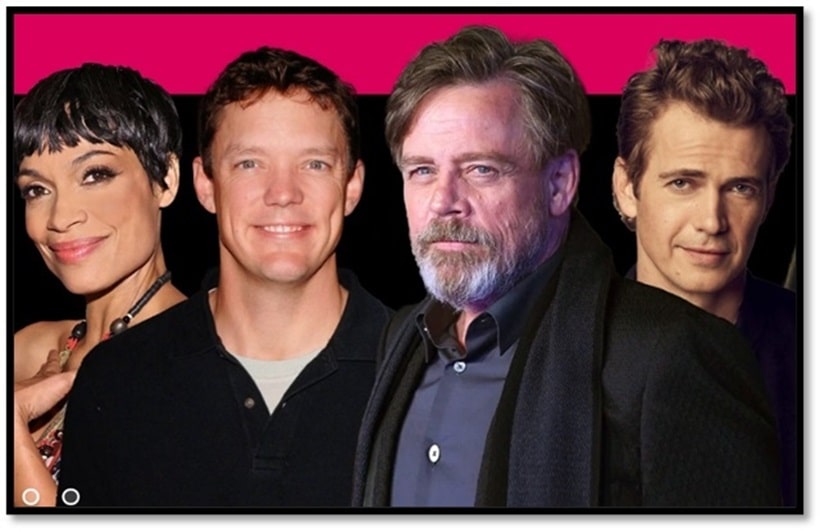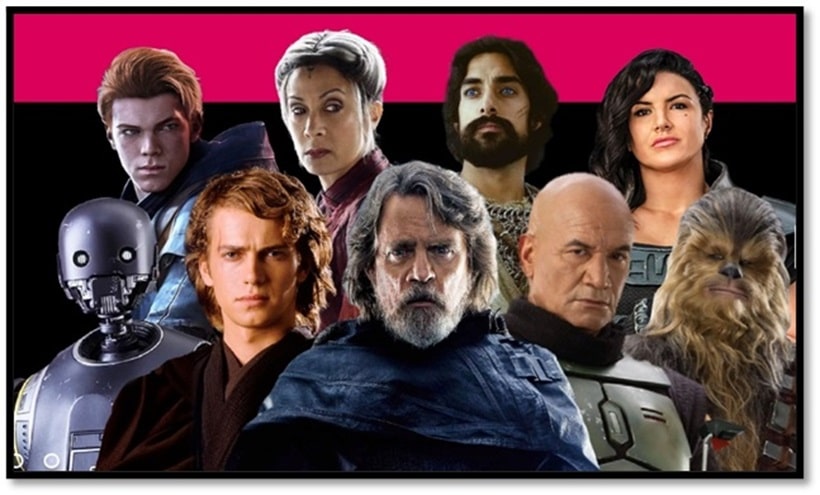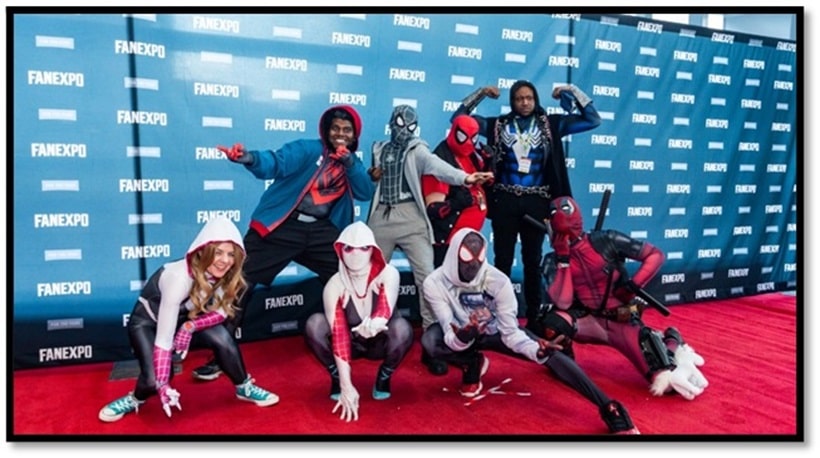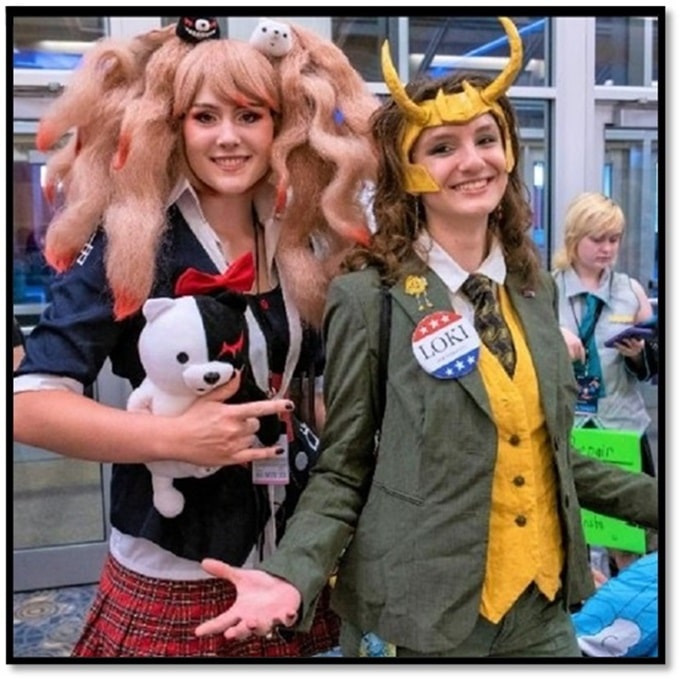Goth Chick News: Buckle Up – We’re Going to the Fan Expo
Way back in 2010, Black Gate photog Chris Z suggested we check out the Wizard World Chicago Comic Con. This was by no means a new event in our fair city. In fact, the Chicago Comic Con was first held at the Playboy Towers Hotel (yes, that Playboy) in 1972. Wizard World, original publishers of the famous Wizard Magazine, purchased the event in 1996, giving it nationwide publicity and eventually expanded to host similar events in nearly twenty cities.
By 2011 it was the largest convention of its kind in Chicago, and though it wasn’t strictly in the idiom of GCN, the show runners were gracious and granted us press passes that year. It turned out to be one of our favorite events and we have covered it every year since.
Like so many other businesses, the entertainment convention industry took a huge hit during the Covid-19 pandemic. Even the biggest comic convention in the world, San Diego Comic-Con, which is run by the non-profit organization that also runs WonderCon, admitted the lack of live events during 2020 put a huge burden on the company’s finances.
By 2021 Wizard World had cut back their conventions to six including Philadelphia, New Orleans, Portland, Cleveland, and St. Louis. Luckily Chicago remained as well since by now the people we met at this event were the sources of ongoing GCN content throughout the year. However, in August 2021 Wizard World announced they would be selling the convention events business to FAN EXPO.
FAN EXPO already runs almost a dozen events across North America. According to a Newsarama article published shortly after the announcement of the sale, that makes it “the largest comic convention organization” across the globe. FAN EXPO HQ president Aman Gupta said in a statement,
FAN EXPO HQ is devoted to creating unmissable, exceptional fan experiences. We’re beyond thrilled to be able to offer that to fans in six new locations and pleased that Wizard World recognized our ability to elevate guest experience to the next level. We’re looking forward to getting to know each of these individual communities, learn what they’re looking for, and raise the bar!
The inaugural FAN EXPO Chicago occurred in August 2023. As we had covered the previous iteration of this show for thirteen years (an auspicious amount of time around here I can tell you) we must admit we were concerned about what this change would mean. However, FAN EXPO Chicago immediately became the ultimate go-to event for sci-fi, horror, anime, and gaming, attracting nearly one-hundred thousand people to the Donald E. Stephens Convention Center in Rosemont last year. Black Gate photog Chris Z and I were blown away by what we saw, and this year is looking to be even more impressive.
Fan Expo 2023 courtesy of Chris Z.
The 2024 celebrity line up includes Star Wars, Terminator and Scream reunions, meet-and-greets for which have been sold out for ages. That said, Chris Z and I are going to do our best to get a look at Mark Hamill and Linda Hamilton. I’m currently trying to land a quick interview with a couple of personal favorites, Christopher Mintz-Plasse (Kick Ass) and Kate Siegel (Haunting of Hill House), while Chris Z is trying to convince his wife he’s a Saved by the Bell fan and that meeting Elizabeth Berkley would have nothing whatsoever to do with Showgirls.
As of the writing of this article, FAN EXPO has 399 artists and vendors listed on their website, meaning there is merch for everyone. There is also a full lineup of celebrity panels and photo ops, as well as “how to” workshops. I also love that the FAN EXPO Chicago website has an “attractions” link which breaks down the convention by attendee interest.
Fan Expo 2023 courtesy of Chris Z.
For example, you can click on Anime, Cosplay, Sci-Fi Fantasy, Gaming and yes, Horror, and see all the targeted show content. This is the first convention of its type to highlight our favorite category as a major part of the event.
As we know most of you aren’t in the vicinity of Chicago, fear not. FAN EXPO HQ has an impressive list of upcoming events across North America including:
Toronto – August 22-25, 2024
Edmonton – September 20-22, 2024
Dallas – October 19-20, 2024
San Francisco – November 29-December 1, 2024
New Orleans – January 10-12, 2025
Portland – January 24-26, 2025
Vancouver – February 21-23, 2025
Cleveland – March 21-23, 2025
Philladelphia – May 16-18, 2025
Dallas – May 30-June 1, 2025
Denver – July 3-6, 2025
Boston – August 8-10, 2025
FAN EXPO Chicago happens August 16-18 so watch this space for our full report.




